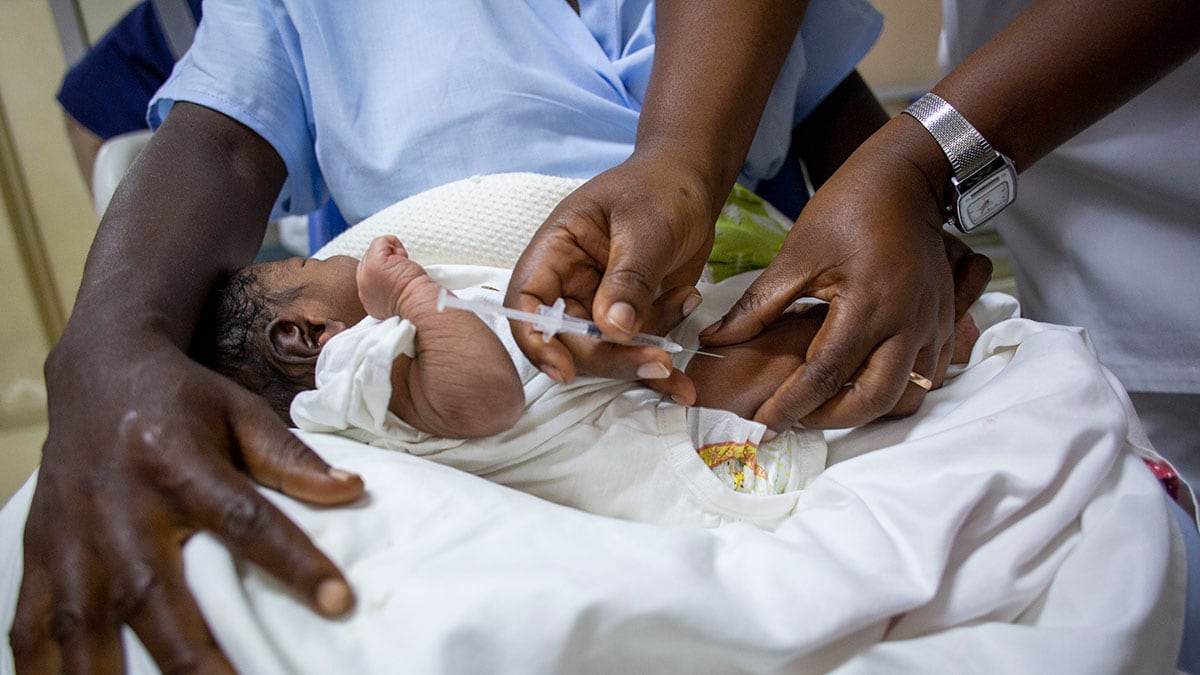Key points
Millions of people around the world have chronic hepatitis B virus (HBV) infection, which can cause serious liver disease and lifelong health problems. HBV infections acquired at birth are much more likely to become chronic than those that happen later in life. Vaccination within 24 hours of birth prevents the spread of the virus from mother to child. Hepatitis B vaccines save lives and money.
The disease
- Approximately 296 million people1 have chronic HBV infections, including over 6 million children under 5 years old.
- Hepatitis B is the leading cause of liver cancer globally.
- It can also cause liver damage, cirrhosis (scarring of the liver), and liver failure.
- The primary source of chronic HBV infections worldwide is the spread of the virus from mother to child at birth.
- If not vaccinated, 9 out of 10 infants infected with the hepatitis B virus at birth will develop chronic HBV infections.
- People with chronic HBV infections have a 15-25% risk of dying2 from hepatitis, cirrhosis, liver cancer, or other diseases caused by HBV.
- Hepatitis B contributes to an estimated 820,000 deaths every year.
See Also:
Learn more about viral hepatitis.
Prevention

Hepatitis B can be prevented through vaccination
- Safe and effective vaccines to prevent hepatitis B have been available since the 1980s.
- Vaccination within 24 hours of birth followed by 2 to 3 additional doses protects children for life.
Vaccination at birth addresses the primary source of chronic HBV infection
- Women who are living with chronic HBV infection can transmit the virus to their newborns during birth.
- Hepatitis B vaccination of a newborn within 24 hours of birth prevents the spread of the virus from mother to child.
- However, in 2022, fewer than half of all newborns worldwide were protected by a hepatitis B birth dose.
Hepatitis B vaccines save lives and money
Resources
Resource
For more information, see the World Health Organization's fact sheet on Hepatitis B and Position Paper on Hepatitis B Vaccines.
Content Source:
Global Immunization
- World Health Organization. Global progress report on HIV, viral hepatitis and sexually transmitted infections, 2021. Accessed February 13, 2024.
- World Health Organization. Hepatitis B. Accessed September 19, 2024.
- Estimating the health impact of vaccination against ten pathogens in 98 low-income and middle-income countries from 2000 to 2030: a modelling study. Li X, Mukandavire C, Cucunubá Z, et al. The Lancet. 2021;397(10272):398-408. doi: 10.1016/S0140-6736(20)32657-X.
- Ozawa S, Clark S, Portnoy A, Grewal S, et al. Estimated Economic Impact of Vaccinations in 73 Low- and Middle-Income Countries, 2001-2020. Bulletin of the World Health Organization 2017; 95 (9): 629-638.
